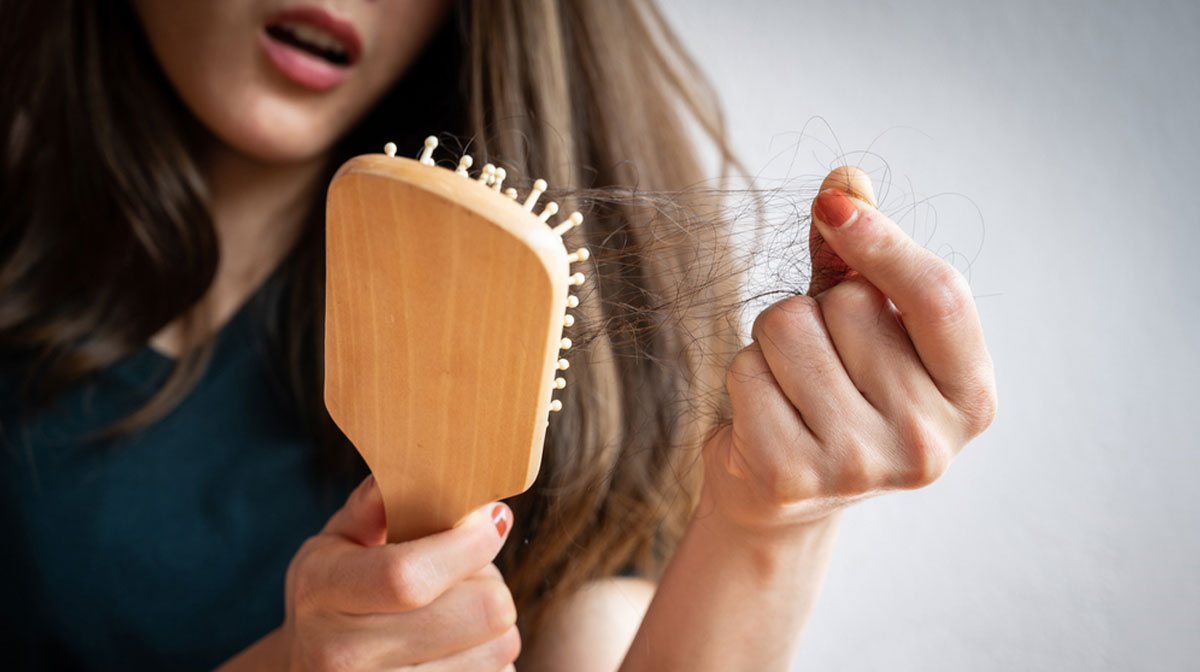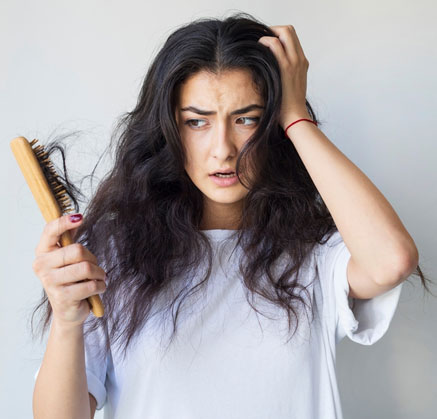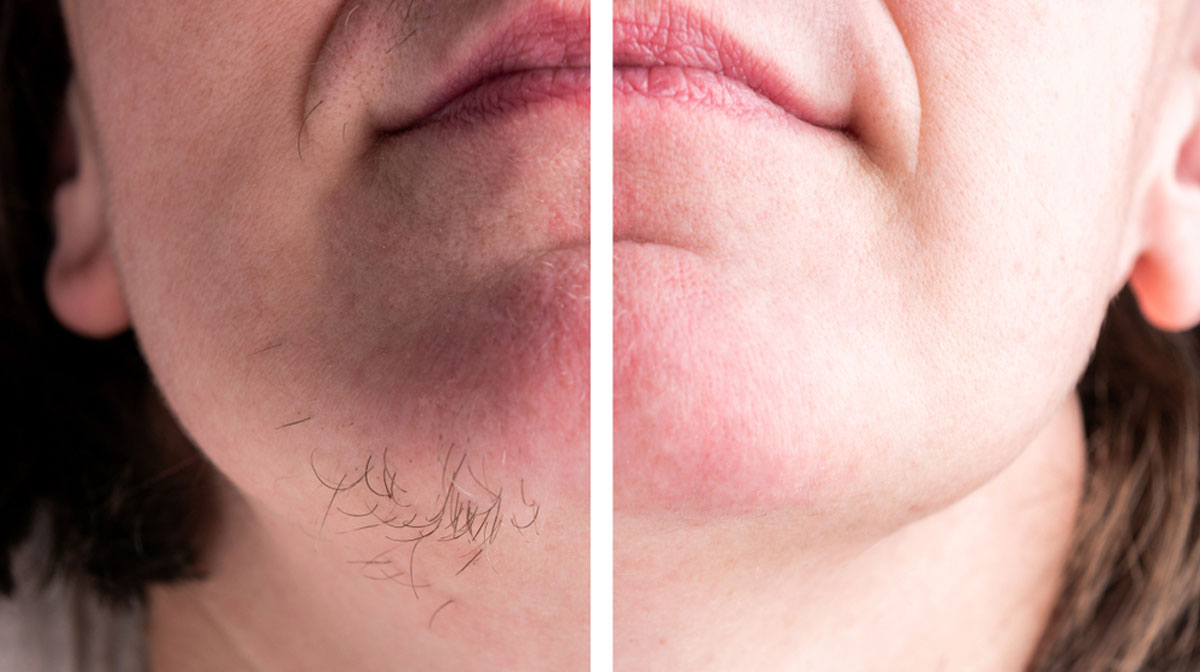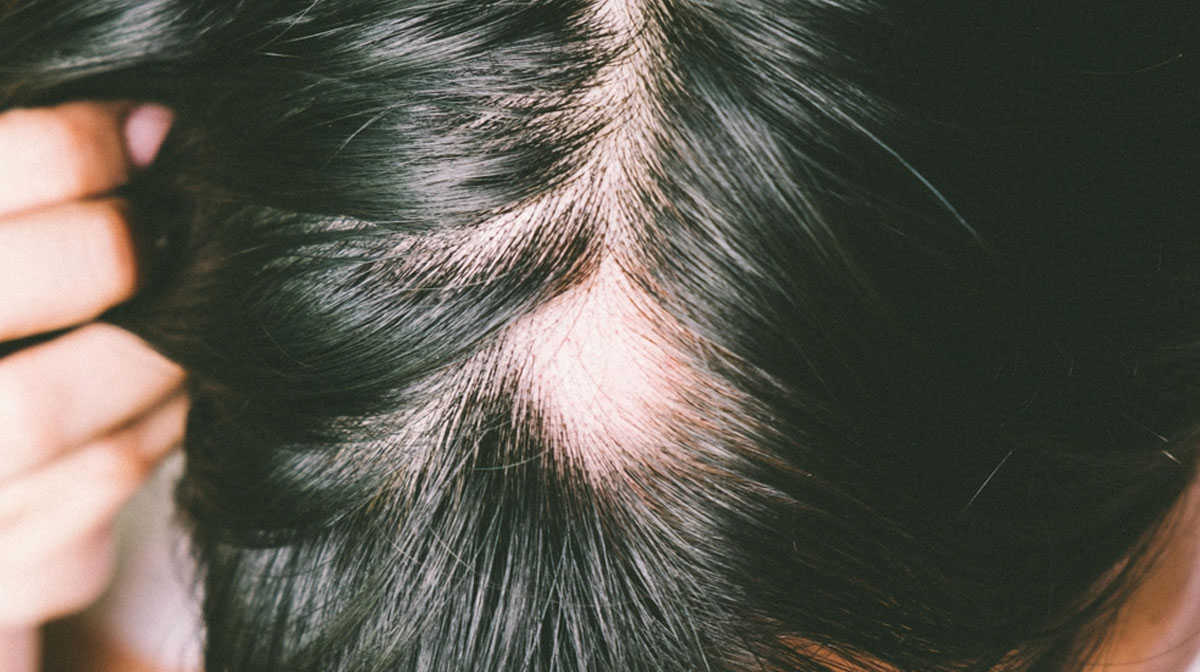- Malad West, Mumbai
- +91-7400188399
- mccmumbaicosmeticcentre@gmail.com
Hair fall Treatments
Hair fall Treatment in Mumbai

What is Hair Fall?
Hair fall is the condition of excessive shedding of hair from the scalp or other parts of the body. It is a natural part of the hair growth cycle, with individuals typically losing 50 to 100 hairs daily. However, when hair loss surpasses this range or occurs in patches, it becomes a cause for concern and may require medical attention.
Mumbai Cosmetic Centre specialized in Hair Fall treatments in Malad mumbai, addressing underlying causes and promoting healthy, resilient hair. Book now!
Types of Hair Fall
1. Androgenetic AlopeciaIt is also called male or female pattern baldness.
This type of hair fall is hereditary and commonly associated with aging.
It leads to gradual thinning of hair over time.
2. Alopecia AreataSudden hair loss in round patches.
It is an autoimmune condition where the immune system mistakenly attacks hair follicles.
3. Telogen EffluviumThis type occurs when a significant number of hair follicles enter the resting phase prematurely of its growth cycle, leading to excessive shedding.
4. Anagen EffluviumUsually caused by chemotherapy or radiation therapy.
It results in sudden hair loss during the active growth phase of hair follicles.
5. Traction AlopeciaIt is caused by excessive pulling or tension on the hair.
It usually occurs due to tight hairstyles like braids or ponytails.
Causes of Hair Fall
Genetics:Family history of hair fall or alopecia can increase your chance of getting the condition.
Hormonal Changes:Variations in hormone levels during different stages of life can contribute to hair fall.
Medical Conditions:Conditions like alopecia areata, scalp infections, and certain autoimmune diseases can cause hair loss.
Stress:Physical or emotional stress can disrupt the hair growth cycle, leading to increased shedding.

Diagnosis
Medical History:Detailed information about family history, medical conditions, medications, and lifestyle factors is gathered.
Physical Examination:A close examination of the scalp and hair to assess patterns of hair loss, scalp condition, and overall hair health.
Blood Tests:Tests for hormone levels, thyroid function, iron levels, and other parameters to identify any underlying medical issues contributing to hair fall.
Scalp Biopsy:In some cases, a thin sample of the scalp tissue may be taken for microscopic examination to diagnose specific conditions.
Prevention of Hair Fall
While some causes of hair fall, such as genetics, cannot be prevented, several strategies can help minimize hair loss:
Maintain a Healthy Diet:Follow a balanced diet rich in substances essential for hair health.
Manage Stress:Practice stress-reducing techniques like meditation, yoga, or counseling to reduce the impact of stress on hair.
Avoid Harsh Hairstyles:Limit the use of tight hairstyles, excessive heat styling, and harsh chemical treatments that can damage hair follicles.
Good Hair Care Practices:Use gentle shampoos and conditioners suitable for your hair type, and avoid over-washing or vigorous towel-drying.
Regular Scalp Massage:Massaging the scalp can improve blood circulation and promote healthy hair growth.
Top Hair Fall Experts in Mumbai
FAQs
1. Can hair fall be reversed?
Depending on the cause, hair fall can often be managed or reversed with appropriate treatment and lifestyle changes.
2. Are there natural remedies for hair fall?
Some natural remedies like scalp massages, essential oils, and dietary supplements may help support hair health, but their effectiveness varies.
3. How long does it take to see results from hair loss treatments?
Results from hair loss treatments can vary widely and may take several months to become noticeable. Consistency and patience are key.
4. Can stress cause hair fall?
Yes, high levels of stress can disrupt the hair growth cycle and contribute to increased shedding.





